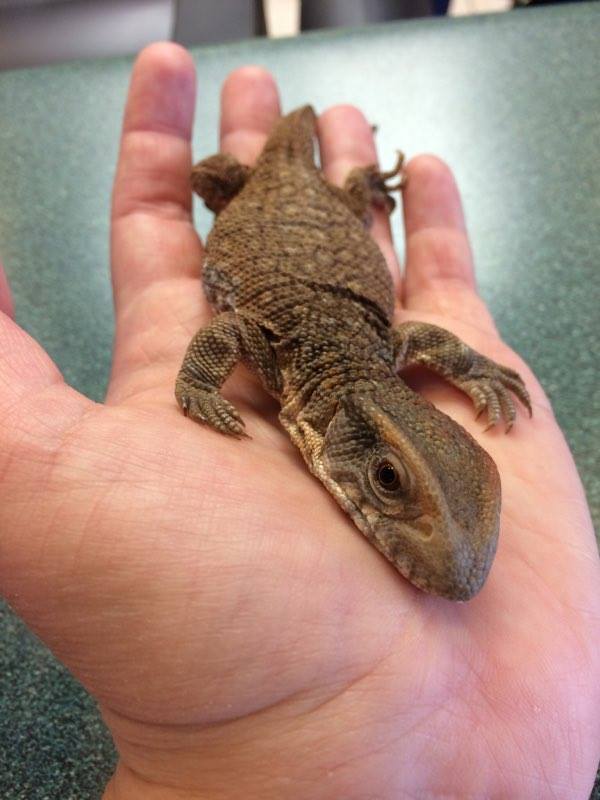10 Tips for Adopting a Bearded Dragon: A Beginner's Guide
Adopting a Bearded Dragon: What You Need to Know
Are you thinking about getting a bearded dragon as a pet? These fascinating creatures make excellent pets for beginner reptile owners. However, before you adopt a bearded dragon, it’s important to educate yourself on their care requirements so that you can provide them with a happy and healthy life. In this beginner’s guide, we’ll cover the top 10 tips for adopting a bearded dragon.
1. Do Your Research
Before you adopt a bearded dragon, it’s important to research their care requirements thoroughly. Bearded dragons are unique creatures that require specific environmental and dietary needs. Educating yourself on these requirements will ensure that you can provide your new companion with the care they need to thrive.
2. Choose a Reputable Breeder or Rescue
When adopting a bearded dragon, it’s crucial to choose a reputable breeder or rescue. A reputable breeder will have healthy and well-cared-for dragons, while a rescue will be able to provide you with a dragon that needs a home. Avoid purchasing from pet stores or online classifieds, as these sources may not provide you with a healthy and well-cared-for pet.
3. Set Up a Proper Enclosure
Bearded dragons require specific temperature and lighting conditions to thrive. You’ll need to set up a proper enclosure that includes a basking area, a UVB light, and a heat source. The enclosure should also be large enough to allow your bearded dragon room to move and climb. Provide your bearded dragon with substrate such as reptile carpet or tile, as they are not able to digest loose particles such as sand.
4. Feed a Balanced Diet
Bearded dragons require a balance of proteins and greens in their diet. They should be fed a variety of insects, such as crickets, dubia roaches, and mealworms, as well as leafy greens and vegetables. Avoid feeding your bearded dragon fruits or sugary foods as they can lead to health problems such as obesity and metabolic bone disease.
5. Provide Regular Baths
Bearded dragons enjoy and benefit from regular baths. Fill a shallow dish with room-temperature water and let your bearded dragon soak for 15-20 minutes. This will help them stay hydrated and shed their skin properly. Be sure to supervise them during bath time and never leave them unattended.

6. Handle with Care
Bearded dragons are generally docile and can become quite tame with regular handling. However, be sure to handle them gently and avoid grabbing them by the tail, as this can cause injury. Never pick up a bearded dragon by their tail. Give them a gentle scratch under their chin for a gentle head rub.
7. Keep the Enclosure Clean
Keeping the enclosure clean is essential to your bearded dragon’s health. Spot clean the enclosure daily and do a deep clean weekly. This involves removing everything from the enclosure, cleaning it with a reptile-safe disinfectant, and replacing the substrate and furniture. Be sure to maintain proper temperature and humidity levels during the cleaning process. A dirty enclosure can cause health issues such as respiratory infections.
8. Schedule Regular Vet Visits
Regular vet visits are crucial for monitoring your bearded dragon’s health. Be sure to find a veterinarian that specializes in reptile care. At each visit, your vet will provide a thorough check-up and may recommend any necessary bloodwork or other tests. Regular vet visits will ensure that your bearded dragon remains healthy and happy.

9. Provide Mental Stimulation
Bearded dragons enjoy mental stimulation which can be provided through toys and other surface items. It is also vital to change layouts and furnishings occasionally to stimulate their curiosity and prevent enclosures from being monotonous. Bearded dragons are also known for sun worshiping, so a window bench is an excellent way to stimulate interest in the outside world.

10. Enjoy Your New Companion
Lastly, enjoy your new companion! Bearded dragons are fascinating creatures with their unique behaviors and personalities. With proper care and attention, they will thrive in their new environment and make an excellent addition to your family.
